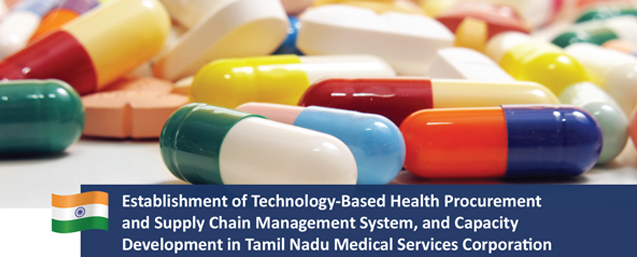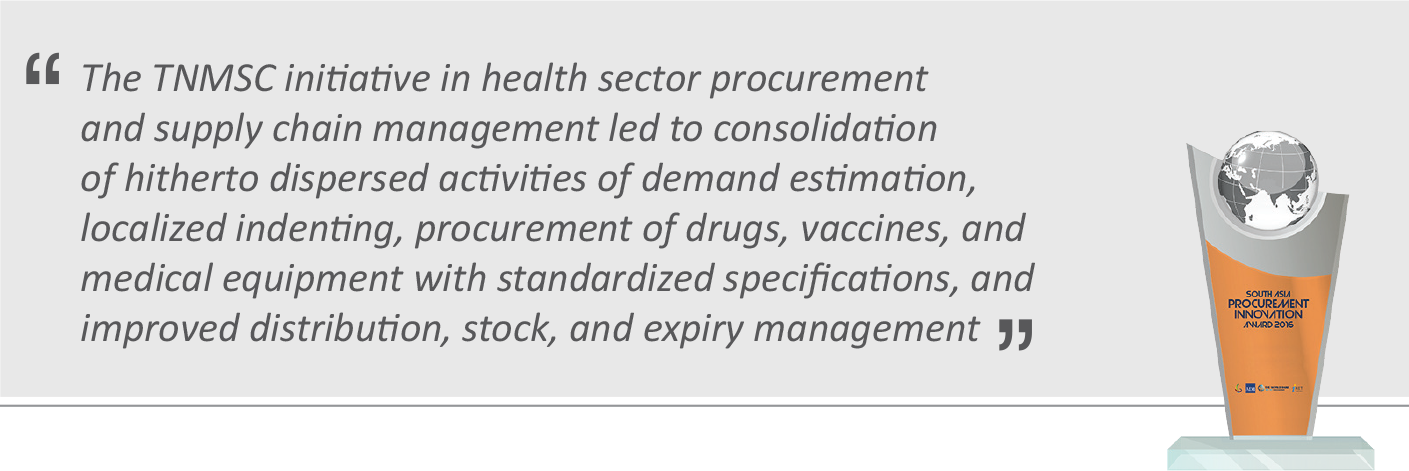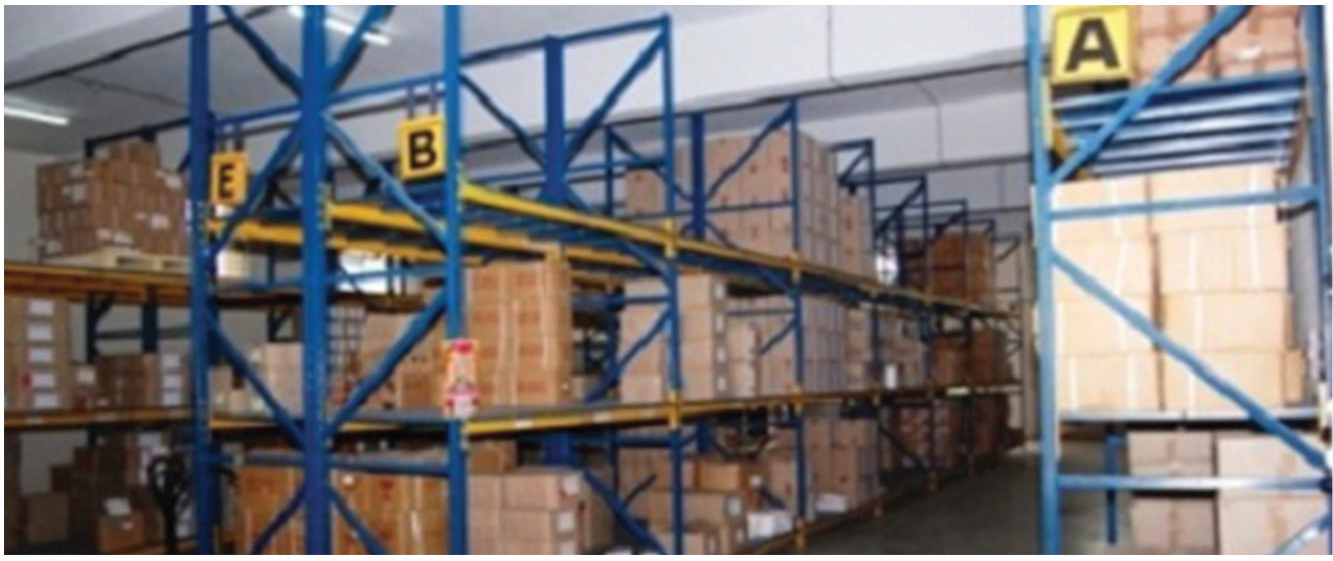Feature Stories
- How Bangladesh bridged the gap between amateur and professional in government procurement
- Rated Criteria: Promoting Value in World Bank Procurement
- Public Procurement Transformation in Bangladesh
- Achievement of Value for Money and Enhancement of Efficiency, Economy and Transparency in Procurement - Document Archive System
Archives
- End-to-End Procurement Planning and Maintenance System Integrated with Project MIS
- Application of Construction Milestones in Rural Road Contracts of Nepal
- Gross National Happiness Model for Pursuing Sustainable Public Procurement
- Government procurement is the basis of wide opportunities for enterprise development
- The Challenges of Procurement Training in a Fragile Country: the Afghanistan Experience
- When and How to Open Contracts: Transparency and Engagement through World Bank Projects
- Innovations and Best Practices in Procurement Processes of Disaster Recovery Projects
- World Bank Experts Discuss Global Procurement Trends and Armenia's e-GP system with the National Assembly
- Technology driving transparent and accountable public procurement reform in Bangladesh
- Prototype for Implementation of Framework Agreement via Blockchain
- Construction Project Planning and Management Capacity Building in India: A Wholistic Approach to Boost Infrastructure Development
- Zimbabwe: Public Procurement reform to catalyze greater transparency and development
- 15th Procurement, Integrity, Management and Openness (PRIMO) Forum
- e-Procurement World Map
- Preventing and controlling corruption: A modern approach to Procurement
- 6th South Asia Public Procurement Conference held in Thimphu, Bhutan
- South Asia Procurement Innovation Awards 2018 Announced
- Procurement iNET completes 5 years and new CPPP Fastest 100% Challenge Launched
- Risky Business: Does Debarring Poor Performers Mitigate Future Performance Risk?
- Global Procurement Summit 2019, New Delhi, India
- World Bank India launches Survey for International Civil Works Contractors
- World Bank launches new Complaints Module in Systematic Tracking of Exchanges in Procurement (STEP) System
- New Open Contracting Data Standard for e-Procurement Systems Launched
- Bangladesh's success in public procurement: Sustained reform really pays off
- The five drivers for improving public sector performance: Lessons from the new World Bank Global Report
- South Asia Public Procurement Innovation Awards 2018
- Conversation with Khaled Elarbi, President, High Authority for Public Procurement (HAICOP), Tunisia on the Digitalization of Public Procurement
- Breaking the glass ceiling in Africa: Rwanda E-Government Procurement System
- How government e-marketplace is revolutionizing procurement in India
- Ensuring Value for Money in Infrastructure Projects - The Botswana way
- Blockchain Lessons for Procurement
- Botswana’s Benevolent Move to Enhance its Procurement Profession
- Achieving Better Value for Money Using e-Auction for Procurement of Goods by Public Sector - A Success Case from DPDC
- Guide to Project Management and Contract Management (GPMCM) – New Approach to Improve Efficiency and Effectiveness of Procurement Outcomes
- Regional Winners of SAPIA 2017 participate in 8th International Public Procurement Conference (IPPC 8) Arusha, Tanzania
- The Future of Public Procurement in the Era of Digitalization
- World Bank Operations Procurement Helping Turkey to Procure a US$2 Billion Gas Storage Facility
- Unlocking Energy Efficiency Market in India - Through Innovative Procurement Business Model
- Getting value for money: Creating an automated market place for farmers in Pakistan
- Towards a Single Market for Public Procurement in Caribbean Small States
- Web-Based Online Evaluation Tool (e-Tool) for Procurement of Works by Royal Government of Bhutan
- Strengthening Health Sector Procurement System Offer Hopes for Universal Health Coverage in Nepal
- Morocco makes Strides in Modernizing its Public Procurement System— Operationalization of the Procurement Regulatory Body
- Innovations in Procurement Process and Selection that Lead to Improved Outcomes – Tenderers’ Database Management System
- Looking Back and Forward: The World Bank’s Procurement Framework
- Independent Monitoring and Evaluation of Contracted Health Services Leads to Improved Outcomes in Rural Areas of Afghanistan
- Fifth South Asia Region Public Procurement Conference brings focus on Procurement in Public Service Delivery
- 12 Procurement Innovations from South Asian Countries Celebrated
- Social Media is Improving Procurement in Lao PDR
- ASEAN meeting explores ways of professionalizing public procurement to meet development challenges
- Second International Training Program on the World Bank’s New Procurement Framework
- South Asia Procurement Innovations Award 2017 launched with Bigger and Better Prizes
- How to bid, finding opportunities, what makes a successful bid
- Pushing boundaries in procurement framework implementation
- Experience of Developing PPSD for the Assam Agribusiness and Rural Transformation Project (APART), India
- An Electronic Approach: Streamlining Georgia's Procurement
- South Asia Heads of Procurement Knowledge Exchange Program to U.S. Government Procurement Systems started
- 13th Procurement, Integrity, Management and Openness (PRIMO) Forum - a Documentary
- Bangladesh to strengthen public procurement with World Bank supported Project
- Establishment of Technology-Based Health Procurement and Supply Chain Management System, and Capacity Development in Tamil Nadu Medical Services Corporation
- Towards a Single Market for Public Procurement in Caribbean Small States
- Redefining Procurement as an Innovative and Collaborative Centre of Excellence for Best-in-Class Sourcing Solution
- India’s PowerGrid Endorsed for Alternative Procurement Arrangements by the World Bank
- Achieving Value for Money in Indonesia’s Geothermal Project
- Citizen Monitoring of Rural Roads Under Pradhan Mantri Gram Sadak Yojana (PMGSY), India
- Establishment of Grant and Service Contract Management Unit (GCMU) to Manage Contracting Out of Health Services in Afghanistan
- Procurement for Regional Development–Public Policy Initiative in Sri Lanka
- PPAF Community-Driven Development (CDD) Procurement Model, Pakistan
- Making Successful Procurement of IT Systems - An Experience from Vietnam
- Procurement Observatories continue to deliver in India
- Implementation of National e-GP System in Nepal
- Government e-Marketplace (GeM), India
- Africa High Level Public Procurement and Electronic Government Procurement Forums
- Development of Procurement Cadre as Part of Holistic Procurement Reforms in Bhutan
- Modernizing Public Procurement in Zimbabwe, one Step at a Time
- Citizen Engagement During Public Procurement Implementation in Bangladesh
- Winter 2017 Virtual Procurement, Integrity, Management, and Openness (PRIMO) Forum on Sanctions and Debarment Systems
- Close and Personalized Procurement Monitoring, Leading to Procurement Efficiency in Irrigation Sector in Fragile and Challenging Environments of Afghanistan
- Procurement Framework 2016 offers wider choices to ‘Go to Market’ based on PPSD
- Procurement Framework 2016 - Benefits, Status of Roll-out and M&E Arrangements
- PPSD offers Fit for Purpose Procurement Solutions
- Global Procurement Summit
- Fourth South Asia Region Public Procurement Conference
- The World Bank e-Procurement Tools
- South Asia Procurement Innovations Awards, 2016
- Learning Videos launched on STEP, online tracking tool on procurement for World Bank Projects
- Open e-Learning is Building a Cadre of Procurement Experts
- South Asia Region Public Procurement Conference, 2017
- Online Certificate Program in Public Procurement in Arabic Launched in Egypt
- First Procurement Knowledge Exchange Forum among ASEAN Countries
- Nobel Prize in Economics for contribution to Theory of Contract
- The Africa Region Harnesses Integrated e-Government Procurement (e-GP) Systems in Pursuit of Transparency and Integrity
- Procurement Reform for Humanitarian and Development Challenges in Kurdistan Region of Iraq (KRI)
- Successful Procurement is not just a set of Activities, it is a Strategy
- Afghanistan - Trends and Recent Developments in Governance
- PPSD is an Opportunity for clients and staff for Improved Procurement Management
- Procurement Reform Advances in the MENA Region
- Data Analysis and Collaborative Work in Action for Expedited Disbursements in Africa
- Ensuring Good Governance in Procurement in Sri Lanka
- New Procurement System to Improve Development Impact and Transparency in South Asia
- World Bank, USTDA Formalize Procurement Partnership
- How the New Procurement Framework Will Benefit 45.6 Million People in India
- Procuring the Future
- Reasons to Bid, Finding Business Opportunities
- New World Bank Procurement Framework Promotes Strengthened National Procurement Systems
- The readiness for Procurement Framework 2016
- 6 Things to know about New Procurement Framework
Establishment of Technology-Based Health Procurement and Supply Chain Management System, and Capacity Development in Tamil Nadu Medical Services Corporation


{This article is an abridged version of the submission on “Procurement Reforms and Capacity Development Activities at Tamil Nadu Medical Services Corporation Limited” made by Ms. Selvi Apoorva, Managing Director, TNMSC, Tamil Nadu, India, for the South Asia Procurement Innovation Awards.}
Summary
Tamil Nadu Medical Services Corporation Limited (TNMSC), a Tamil Nadu Government undertaking in India, is successfully implementing healthcare-related schemes throughout the State having a population of 77.88 million. The Corporation has put in place a transparent procurement process to make available for free Generic Drugs in Government health facilities, greatly reducing the Out-of-Pocket Expenditure of people of the State on drugs. TNMSC is also actively managing the Supply Chain of drugs in the State and ensures continuous availability of drugs at all Government health facilities. Further, it is effectively facilitating Public-Private Partnership in the Healthcare services in coordination with multiple stakeholders.
Background
TNMSC was established in 1994-95 to procure drugs, medical equipment and other healthcare-related products, and distribute them to public health facilities throughout the State. Through an innovative ICT-based automation of demand forecasting, procurement, distribution, warehousing, and stock management, the Corporation facilitates a Rational Drug Distribution system, adhering to applicable laws of the land and other regulatory requirements pertaining to drugs and medicines.
From its inception, in the last two decades, TNMSC has rendered valuable services for effective implementation of all Healthcare-Related Schemes in the State, and to achieve the Goals and Targets of the Health Department. The Corporation has also established a continually improving Quality Management system and is certified with ISO recognition (ISO 9001:2008). Based on the success of the model, TNMSC has rendered Consultancy services to various State Governments in India, like Rajasthan, Andhra Pradesh, Odisha, Uttar Pradesh, Karnataka, Madhya Pradesh, and Kerala. It has also delivered training courses on Drug Logistics and Warehousing for personnel from Karnataka, Assam, Sri Lanka, Myanmar, and Nepal.

Following were the challenges faced in Drugs Procurement in the State of Tamil Nadu prior to establishment of TNMSC Limited:
- Acute shortage of drugs and medicines at Government facilities.
- More than 1,000 drugs were procured, some of them even branded. There was no concept of essential drugs.
- Drugs procured in bulk packing – unhygienic storage and distribution
- Post-delivery quality assurance was non-existent and pre-shipment inspection was perfunctory.
- Poor quantification led to excess procurement and wastage.
- Delays in procurement process also led to shortage.

The TNMSC initiative led to consolidation of hitherto dispersed activities of demand estimation, localized indenting, procurement of the same items with standardized specifications, and improved distribution, stock, and expiry Establishment of Technology-Based Health Procurement and Supply Chain Management System, and Capacity 41 Development in Tamil Nadu Medical Services Corporation management. Innovation was brought in at every point and the significant ones included:
- Rationalization of Drug Procurement for the Government Health facilities, eliminating shortage and excess.
- Introducing packaging standards with measures to prevent pilferage.
- Totally transparent process throughout the procurement cycle with a simple and clear standard bidding document.
- Elimination of quantification with tenders based on past consumption, and purchase orders based on actual monthly consumption – a genuine pull system.
- Effective implementation of Information and Communication Technologies (ICT) in the Drugs Supply Chain Management system. The system generates online information on inventory at district warehouses, enabling the management to prevent stockouts and excesses.
- An innovative passbook system, something like a debit card to health facilities, to enable lifting of the required goods from district warehouses. This has simplified the supply chain up to the facilities.
- Scientifically developed Quality Assurance procedures to ensure the Quality of Drugs.

Impact Generated
The technology-driven model followed by TNMSC has had a lasting impact on health services delivery not only in the State, but across the country. Its innovative approach has become the norm for all progressive States and at the national level for health sector procurement and supply chain management. Some of the significant and visible impacts are:
- Based on a detailed survey in 2015 by the National Sample Survey Organization, the Out-of-Pocket expenditure on drugs was lowest in Tamil Nadu among the major states, Rs. 145 per capita as against Rs. 2,284 for the country.
- The Corporation’s transparent procurement process has become a model for other States in India. This has also been much appreciated by international organizations, such as the World Bank and WHO.
- Upgrading skills of service providers in Drug distribution services, Human resource development, Efficient distribution through decentralization at district-level drug warehouses, Simplified indenting system (Including Online Indent), Usage of ICT system for monitoring of warehouse inventories, and Training and sensitization of all stakeholders towards effective implementation of the Free Drugs Policy of Tamil Nadu are some of the reasons for its success.

Scalability and Sustainability
TNMSC is a pioneering organization functioning for more than two decades, with a well-noted innovation in transparent Public Procurement System and other Diagnostic services at Healthcare facilities. The model of TNMSC has already been replicated in other states of India, such as Kerala, Rajasthan, Chhattisgarh, Haryana, Karnataka, Andhra Pradesh, Jharkhand, Bihar, Madhya Pradesh, and Odisha. The Central Government too has set up a similar agency for procurement of essential drugs. TNMSC is steadily visited by various Governments, including from abroad, for Training and Institutional Building purposes on various occasions from its inception, which shows the keen interest in replication of the TNMSC Model.


The Corporation has learned to manage the supply chain effectively even when there was failure of all modes of transportation due to natural calamities and various strikes. Tamil Nadu faced unpredicted rainfall during the North East Monsoon in the month of November and December 2015, and most parts of the North Tamil Nadu were inundated. To eradicate infectious diseases due to bacterial and viral proliferation, TNMSC procured and supplied chemicals, such as Bleaching Powder for use in the wet soil to control bacterial growth, Chlorine tablets to control the spread of diseases by contaminated water, Lysol to clean the floors and control bacteria, and Sodium Hypochlorite solution to control the spread of bacterial diseases due to stagnated water. These chemicals were procured by TNMSC on war footing basis for immediate requirements of Corporations of Tamil Nadu and Municipalities and Panchayat Unions to control infectious diseases.
In addition, the Health and Family Welfare department of Tamil Nadu organized mobile dispensaries in flood-affected areas. It carried out door-to-door diagnostic services, provided medical assistance to flood-affected patients, and catered to the need of medicines, such as diagnostic kits, antibiotics, intravenous fluids, analgesics etc., required for mobile medical camps. These were arranged by TNMSC on war footing basis from suppliers and nearby warehouses. The Corporation warehouses were working on round-the-clock basis for catering to the need of hospitals and patients. Thereby, contagious and infectious diseases were totally controlled by the Health Department effectively and in a timebound manner. TNMSC also played a vital role in mobilizing quality drugs in time and assisting mobile medical camps. TNMSC is thus capable of adapting to the dynamic changes in Public Procurement.
